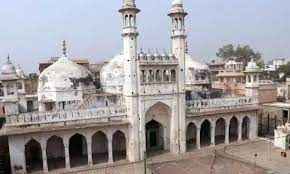The Allahabad High Court ruled on Monday that the civil petitions that are currently pending before the Varanasi court, which seek the restoration of the temple at the location and the ability to worship in the Gyanvapi mosque, are “not barred by the Places of Worship Act of 1991.” The court further stated that the Gyanvapi premises cannot have a dual religious character; they can only have a Hindu or a Muslim religious character.
According to Justice Rohit Ranjan Agrawal, only locations with an “undisputed” religious nature are covered by the prohibition on bringing legal action challenging the religious character of a place of worship under the Places of Worship Act, which aims to maintain the religious character of any place of worship as it existed on August 15, 1947. In this instance, however, the Court observed that there is disagreement over the Gyanvapi compound’s religious nature.
“The Act of 1991’s Sections 4(1) and 4(2) apply to the uncontested structure. Declaring that a location is a place of worship for a certain group of people does not establish the location’s religious nature. The Act was enacted in order to put an end to the disputes that occasionally arose around the conversion of places of worship, as the government believed that such conversions ought to be outlawed. But in this particular instance, the plaintiffs’ requested relief is not the conversion of any house of worship, but rather a declaration on the religious nature of a portion of the Gyanvapi compound. The plaintiffs contend that the sacred character of the Gyanvapi property, where Adi Lord Vishweshwar resides, has never altered, and the construction of an alleged mosque there won’t alter that,” the Court said.
The bench of Justice Rohit Ranjan Agrawal made these statements in rejecting a plea from the Anjuman Intezamia Masajid Committee, which is in charge of overseeing the Gyanvapi mosque. The committee contested the lawsuits that the Hindu petitioners had filed, arguing that the Places of Worship Act (Special Provisions) Act, 1991, forbade such lawsuits.
The Hindu petitioners assert that the core of the Gyanvapi site contains a portion of an ancient Lord Vishweshwar temple. Additionally, they have argued that the disputed location is the home of “Swayambhu Lord Vishweshwar” and cannot be a structure belonging to another religion.
The court stated, “After considering the discussions, I have concluded that the plaintiffs’ current suit, Suit No. 610 of 1991, is not precluded by Section 4 of the Act of 1991, and the plaint cannot be dismissed under Order 7 Rule 11 C.P.C.”
Thus, I believe that both written and oral testimony provided by both parties will be necessary to ascertain the religious nature of the contested location as it existed on August 15, 1947. The contested house of worship cannot be referred to as a temple or mosque until the court renders a decision. The Gyanvapi Compound exhibits characteristics of both Hindu and Muslim religions. It is not capable of having two characters at once. The Court must determine the religious nature based on the parties’ pleadings and any evidence presented to support their pleadings. The judgement said that no decision could be made based on how the preliminary matter of law was framed.
Consequently, the Muslim side’s appeals contesting the maintainability of the 1991 civil suit filed by Hindu worshippers demanding the right to worship in the space currently held by the Gyanvapi mosque were denied by the High Court.
The Hindu groups also wanted the Lord Vishweshwar Temple, an old temple they said had stood within the premises, to be restored. The Muslim side filed five petitions, which the court dismissed on Tuesday. The petitions contested the suit’s maintainability and earlier rulings asking the Archaeological Survey of India (ASI) to survey the Gyanvapi premises.
The Places of Worship Act of 1991 was cited as the primary defence offered by the Muslim parties, which also included the UP Sunni Central Waqf Board and the Uttar Pradesh Sunni Central Waqf, against the Hindu parties’ lawsuit. The High Court dismissed this argument today. The Hindu side said that the lawsuit from 1991 was justified because it happened before the Places of Worship Act.






